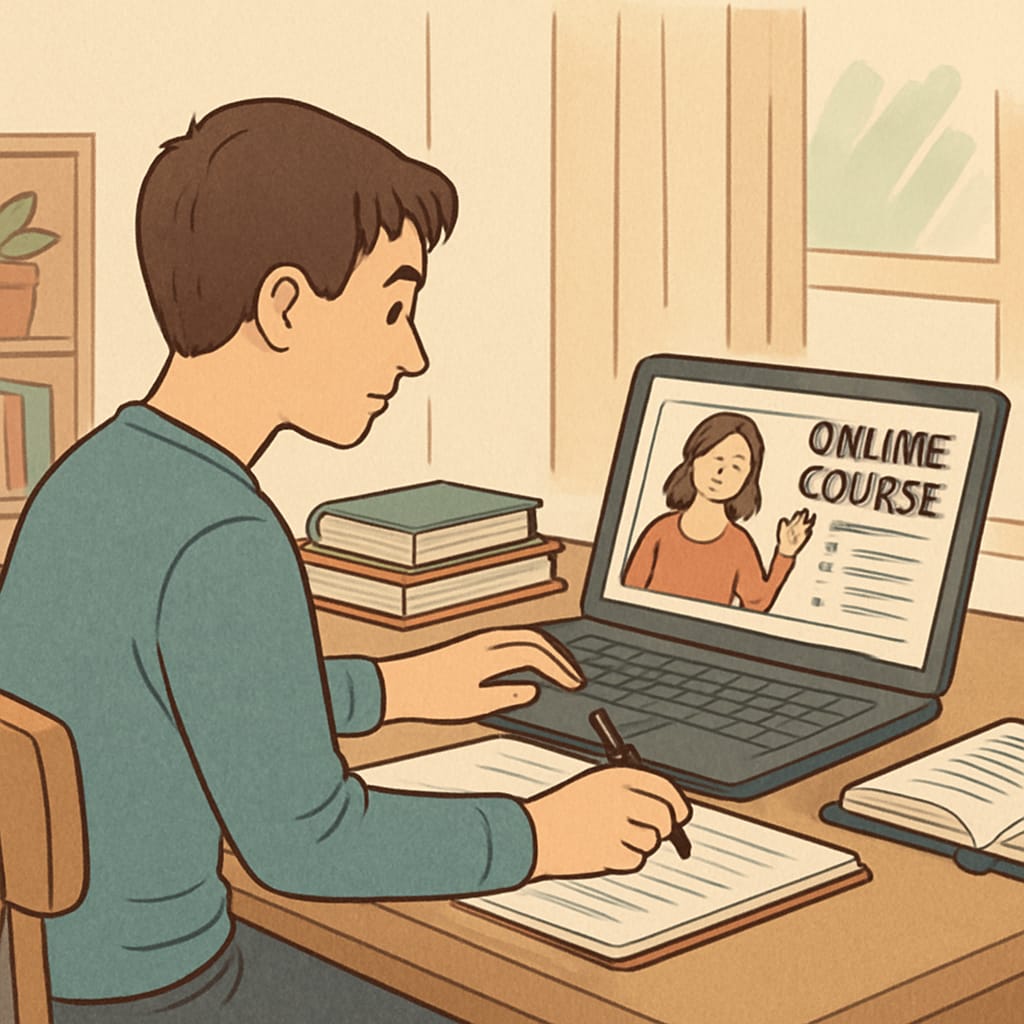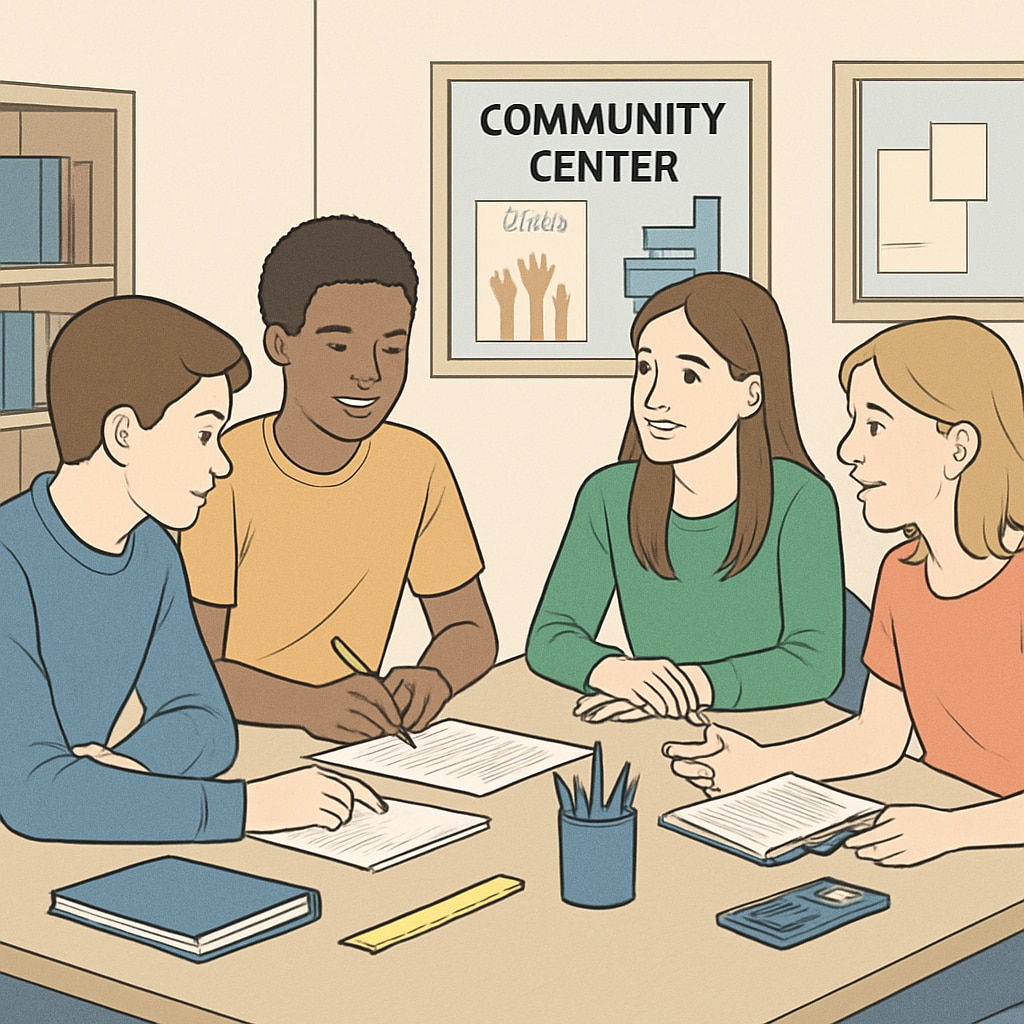As high school students approach the pivotal years of their education, finding high-quality extracurricular learning opportunities becomes essential. Whether it’s to explore personal interests, enhance academic performance, or prepare for college, accessing the right educational courses, extracurricular learning, and resources can make a significant difference. This guide provides a roadmap for students to identify and utilize diverse options, from online platforms to local community programs.
Online Platforms: Unlocking Access to Global Knowledge
In today’s digital age, online platforms are among the most accessible and diverse sources of extracurricular learning. They offer courses in a wide range of subjects, including mathematics, science, languages, and even niche topics like graphic design or coding.
- Massive Open Online Courses (MOOCs): Websites like edX and Coursera provide free or affordable courses from top universities worldwide.
- Specialized Learning Apps: Platforms like Duolingo (language learning) and Brilliant.org (STEM-focused content) are ideal for skill development.
- Test Preparation Resources: Websites including Khan Academy offer free SAT, ACT, and AP test prep materials.
By leveraging these platforms, students can supplement their school curriculum and pursue interests that may not be available in traditional classrooms.

Community Programs: Local Opportunities for Personal Growth
Community organizations often provide workshops, mentorship programs, and extracurricular activities tailored to high schoolers’ needs. These programs can help students build life skills, network with professionals, and explore potential career paths.
- Public Libraries: Many libraries host free workshops on diverse subjects, including writing, public speaking, and technology.
- Non-Profit Organizations: Groups like Boys & Girls Clubs of America offer after-school programs designed to boost academic and personal development.
- Local Businesses: Some businesses organize skill-based workshops, such as coding bootcamps or entrepreneurship seminars.
Engaging in community programs allows students to interact with peers while developing critical skills in a hands-on environment.

College Prep Courses: A Head Start on Higher Education
For those planning to pursue higher education, college prep courses are invaluable. These programs are specifically designed to help students master advanced subjects, improve standardized test scores, and build a competitive college application profile.
- Advanced Placement (AP) Classes: Many schools offer AP courses, but online platforms like AP Central can also provide additional resources and practice exams.
- Dual Enrollment: Some colleges allow high school students to take college-level courses and earn credits before graduation.
- Summer Programs: Prestigious universities like MIT and Stanford host summer enrichment programs in STEM, humanities, and more.
These preparatory courses not only deepen academic knowledge but also expose students to the rigor of college-level work, easing the transition to higher education.
Moreover, combining college prep with other extracurricular learning opportunities can create a well-rounded academic experience.
Balancing Academic and Extracurricular Activities
While exploring these resources, students must also prioritize balance. Overloading on activities can lead to burnout and diminished academic performance. Here are some tips for effective time management:
- Set clear goals and choose activities that align with your interests and aspirations.
- Allocate specific time slots for schoolwork, extracurriculars, and relaxation.
- Regularly evaluate your commitments and make adjustments as needed.
By maintaining a healthy balance, students can maximize the benefits of educational courses, extracurricular learning, and resources without feeling overwhelmed.
In conclusion, the journey to academic and personal growth extends far beyond the classroom. By exploring online platforms, engaging in community programs, and taking advantage of college prep courses, high school students can unlock a world of opportunities. These resources not only enhance immediate learning outcomes but also lay a strong foundation for future success.
Readability guidance: Short paragraphs and lists help break down complex information. Transition words enhance flow, and the use of examples provides clarity. Keywords are distributed evenly to optimize SEO without overuse.


